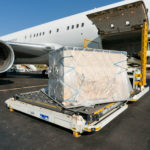Leading space consultancy and market intelligence firm Euroconsult has said that a major transition is taking place in the space sector, as collaboration between different governments, as well as between public and private organisations, provides a boost to the increasing investments from established players.
Since the 1950s, the space exploration market has been characterised by a small number of large spending nations as they raced to establish new boundaries for science, technology, innovation, and international prestige.
But the company predicts that the expansion of international involvement in the space exploration market will result in a new era, in which government investment levels are expected to reach up to $31 billion by 2031, despite ongoing geopolitical issues.
Prospects for Space Exploration report
Euroconsult’s latest ‘Prospects for Space Exploration’ report found that more countries than ever are joining the space exploration market. Newcomers or recent players include Australia and the UAE, with overall government investments towards space exploration in 2022 at 59 per cent higher than 10 years ago.
Space transportation programs are expected to remain the most funded application for the next decade, reaching $10.7 billion by 2031.
This is in part due to the support needed for the development of the human lunar landers and the SLS/Orion as part of the Artemis programme.
Meanwhile, China is developing the International Lunar Research Station in partnership with Russia with the project expected to tie up an important portion of the budget for Chinese space activity for the foreseeable future.
When combined with transportation applications, orbital infrastructure projects currently represent over 58 per cent of the total space exploration budget.
Moon exploration a stepping stone
Miguel Ouellette, principal adviser, said: “Our forecasts indicate that lunar and cis-lunar activities will provide a major focal point to catalyse investment in the space exploration market over the coming years.
“In fact, moon exploration will act as a ‘stepping stone’ towards future Mars endeavours, and government investments in this application are projected to drastically increase by over 4.6x in the next decade when compared to the previous one.”
He added: “Private companies are expected to play an increasingly important role in these developments, with as many as 60 commercial lunar missions to launch within the next decade.
“However, the role of governments will still remain crucial in order to support the industry, especially as a customer of commercial solutions, as well as in terms of sharing costs, risks, and responsibilities for space exploration endeavours.”
Subscribe to the FINN weekly newsletter

